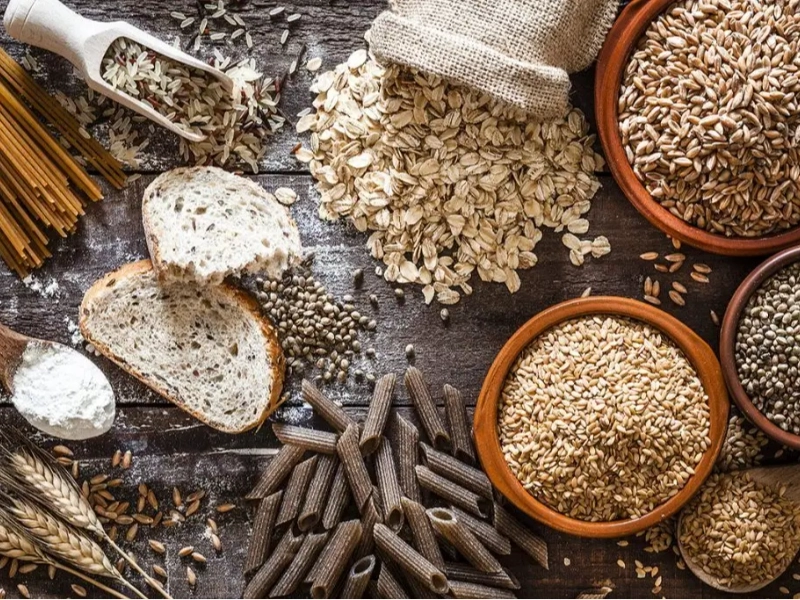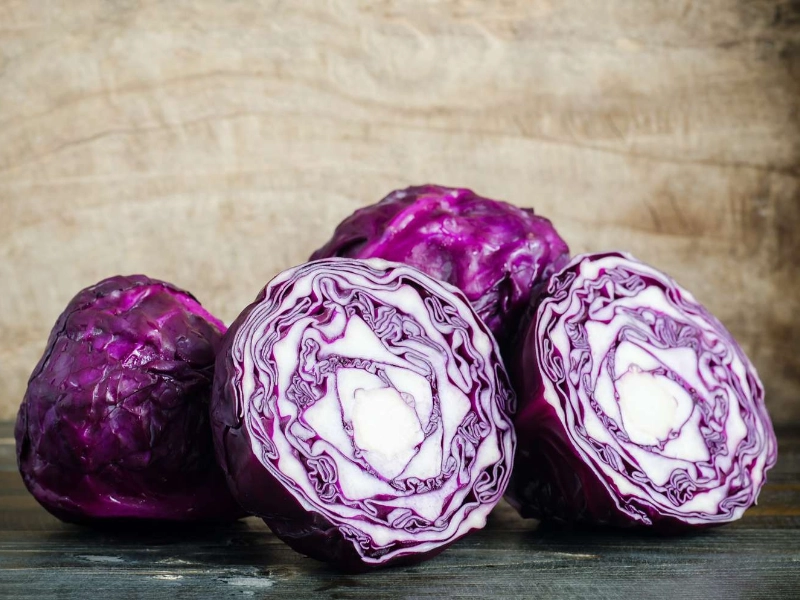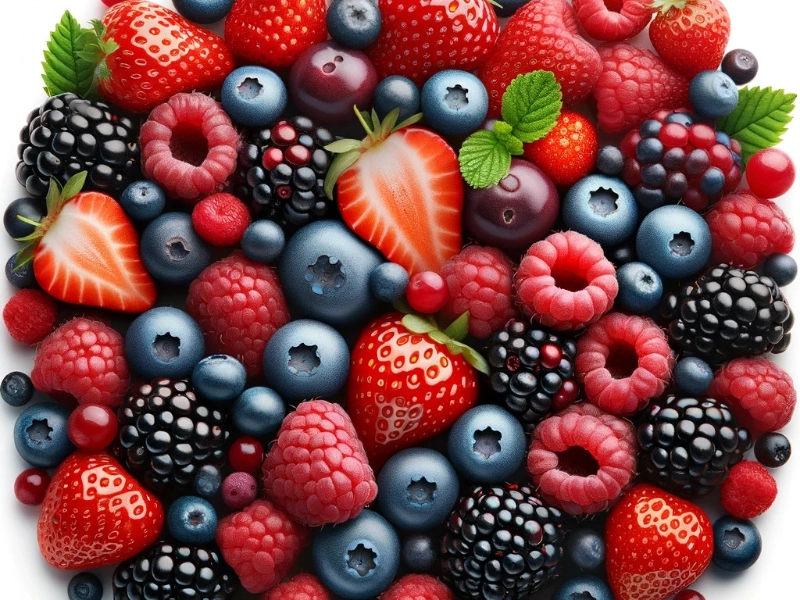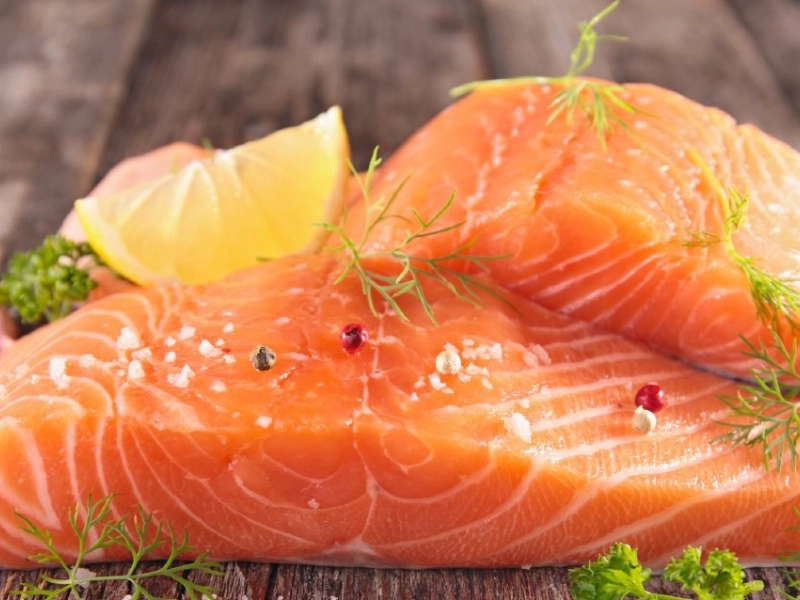Incorporating a diverse diet that features leafy greens, tomatoes, berries, and whole grains can significantly enhance cognitive function. These foods are abundant in vital nutrients, including B vitamins and omega-3 fatty acids, that are essential for optimal brain health. A recent study suggests that a higher intake of whole grains is associated with a slower rate of cognitive decline, particularly among Black participants. More research is necessary to determine if this finding applies to other populations.

 Tomatoes (Lycopersicon esculentum) are rich in vitamin C, potassium, and antioxidants such as lycopene. Research has shown that tomatoes can enhance hippocampal neurogenesis in older mice and promote synaptic plasticity. They contain many nutrients that benefit brain health, including lutein and zeaxanthin, which are also found in leafy greens and whole grains. Lycopene acts as an antioxidant and helps regulate genes related to inflammation and cell growth in the brain.
To maximize these benefits, incorporate tomatoes into your meals regularly. If considering supplements, consult your doctor for recommendations tailored to your needs.
Tomatoes (Lycopersicon esculentum) are rich in vitamin C, potassium, and antioxidants such as lycopene. Research has shown that tomatoes can enhance hippocampal neurogenesis in older mice and promote synaptic plasticity. They contain many nutrients that benefit brain health, including lutein and zeaxanthin, which are also found in leafy greens and whole grains. Lycopene acts as an antioxidant and helps regulate genes related to inflammation and cell growth in the brain.
To maximize these benefits, incorporate tomatoes into your meals regularly. If considering supplements, consult your doctor for recommendations tailored to your needs.
 As a member of the brassica family, red cabbage is packed with brain-boosting nutrients. It contains antioxidants like sulforaphane and anthocyanins that help prevent oxidative damage and reduce inflammation. Rich in vitamin C, red cabbage supports immune function by stimulating white blood cell activity.
This vegetable also aids in lowering cholesterol and triglyceride levels, which are linked to cardiovascular diseases. It is advisable to consume cabbage raw, as cooking can diminish its nutrient content. Steaming is a healthy cooking method that preserves most of its anthocyanins, while boiling and stir-frying are also good options.
As a member of the brassica family, red cabbage is packed with brain-boosting nutrients. It contains antioxidants like sulforaphane and anthocyanins that help prevent oxidative damage and reduce inflammation. Rich in vitamin C, red cabbage supports immune function by stimulating white blood cell activity.
This vegetable also aids in lowering cholesterol and triglyceride levels, which are linked to cardiovascular diseases. It is advisable to consume cabbage raw, as cooking can diminish its nutrient content. Steaming is a healthy cooking method that preserves most of its anthocyanins, while boiling and stir-frying are also good options.
 Berries, particularly blueberries, are loaded with antioxidants and essential vitamins and minerals that combat disease. They are a key component of the MIND diet. Research indicates that individuals who consume two servings of berries weekly experience less cognitive decline than those who do not.
The phytochemicals responsible for the vibrant colors of berries help prevent degeneration and enhance both motor control and memory by influencing signaling pathways related to inflammation, cell survival, and neurotransmission. Berries also provide vitamin E and folate. Consider adding them to oatmeal, salads, or yogurt parfaits, or using them as toppings for soups and salads.
Berries, particularly blueberries, are loaded with antioxidants and essential vitamins and minerals that combat disease. They are a key component of the MIND diet. Research indicates that individuals who consume two servings of berries weekly experience less cognitive decline than those who do not.
The phytochemicals responsible for the vibrant colors of berries help prevent degeneration and enhance both motor control and memory by influencing signaling pathways related to inflammation, cell survival, and neurotransmission. Berries also provide vitamin E and folate. Consider adding them to oatmeal, salads, or yogurt parfaits, or using them as toppings for soups and salads.
 Fatty fish, including salmon, trout, mackerel, herring, and sardines, are excellent sources of omega-3 fatty acids, which are crucial for brain health. These fish provide protein, B vitamins, and DHA, a fat that supports the health of tiny blood vessels in the brain.
Leafy greens like kale and spinach are also rich in vitamin K, folate, and antioxidants that enhance cognitive health. Additionally, they contain caffeine, which helps keep the mind alert by blocking adenosine, a chemical that induces sleep.
Remember, your diet is just one aspect of a brain-healthy lifestyle. Regular exercise, stress management, quality sleep, and engaging in intellectual activities are all important for mental well-being. The McCance Brain Care Score is a science-based tool that evaluates dietary, physical, social, and lifestyle factors to assess cognitive health and suggest ways to improve it.
Fatty fish, including salmon, trout, mackerel, herring, and sardines, are excellent sources of omega-3 fatty acids, which are crucial for brain health. These fish provide protein, B vitamins, and DHA, a fat that supports the health of tiny blood vessels in the brain.
Leafy greens like kale and spinach are also rich in vitamin K, folate, and antioxidants that enhance cognitive health. Additionally, they contain caffeine, which helps keep the mind alert by blocking adenosine, a chemical that induces sleep.
Remember, your diet is just one aspect of a brain-healthy lifestyle. Regular exercise, stress management, quality sleep, and engaging in intellectual activities are all important for mental well-being. The McCance Brain Care Score is a science-based tool that evaluates dietary, physical, social, and lifestyle factors to assess cognitive health and suggest ways to improve it.